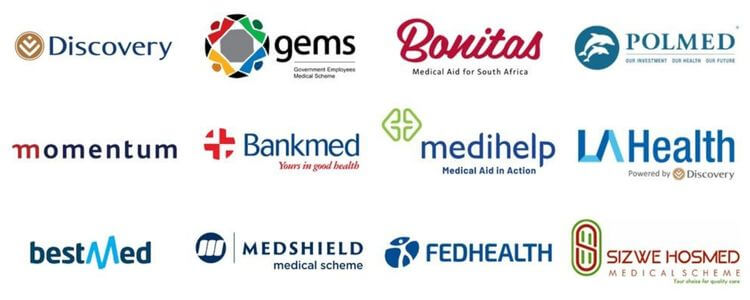A journalist recently asked me some questions about addiction, its costs and what constitutes quality care. Below is the Q&A.
- Can you talk about quality addiction treatment costs in South Africa, what medical aid pays and the issue of co-payments? Can you explain why treatment is expensive? What goes into a resourced rehab treatment programme such as the one at Changes Addiction Rehab?
Some people count heads at an alcohol rehab, add up the admission price then think that the rehab is printing money. This may be the case at rehabs where they don’t deliver quality addiction treatment delivered by professionals. However, if you look behind the curtain at a quality rehab you’ll see the costs of 24-hour nursing, doctors, psychiatrists, psychologists, occupational therapists, social workers, registered counsellors, addiction counsellors and interventionists is very high. It’s very expensive to run a quality addiction treatment centre.
Quality addiction treatment:
In South Africa costs between R40,000 and R70,000 for 3 to 4 weeks of primary care. Primary care is the initial phase of treatment & starts with detox, stabilisation, and integration into the daily routines of therapy. The next key step is generating collateral from families, to diminish the discrepancy between how the patient perceives their life, world, and addiction – usually lots of justification and rationalisation and the actual severity of their addiction – and how it really is.
Unless we can get patients to accept the nature and severity of their problem, they aren’t in a position to assume responsibility for their recovery. The quality addiction treatment process is nuanced, requires accredited and experienced professionals and costs money.
It’s not an easy process or we wouldn’t need rehabs. Almost all people with substance or alcohol use disorders have some degree of trauma. This necessitates treatment by an experienced, multidisciplinary team of professionals – quality addiction treatment must be comprehensive if we’re to give the patient the best chance of making the necessary shift needed to stay clean and sober.
Changes addiction rehab is the market leader being the first rehab in SA to offer daily sessions with a psychologist to patients and also BWRT® (BrainWorking® Recursive Therapy) an “innovative and exciting new therapy, creating long-lasting results. BWRT® Level 1 is open to all Clinical Social Workers (with a Masters Degree), Registered Counsellors, Psychologists and Psychiatrists registered with the Health Professions Council of South Africa.
BWRT® Level 2 is only open to Psychologists and Psychiatrists registered with the Health Professions Council of South Africa.”
If the addiction rehabilitation centre you’re considering doesn’t have professionals on their team who can be accredited by these sorts of new programmes, I’d suggest you look elsewhere for quality addiction treatment delivered by a multidisciplinary team. The benefit of this multi-pronged approach is that various professionals have different training and perspectives. This is one of the keys to comprehensive rehabilitation.
Also, if your medical aid won’t fund a rehab, it’s likely a low-quality treatment centre. Most medical aids will cover 21 days of inpatient rehab per year and the co-payment varies from rehab to rehab. Generally the higher the co-pay the better the quality addiction treatment, and co-payments range from R15,000 to R30,000 depending on your medical aid and which rehabilitation centre you choose.

- Could you talk about the cost of long-term, both secondary addiction rehabilitation and halfway house?
90 days is the gold standard in quality addiction treatment. We know that for severe dependencies less than 90 days is of little value. Invariably patients that choose to have more support are better able to maintain sobriety. There’s a cost to skimping on quality addiction treatment. Substance use disorders touch every corner of an individual’s life, the people close to them, and beyond. Living the nightmare of addiction is bad enough. Addicted people hurt their families, communities, and society at large. Not getting treatment and recovery costs more than Rands and Cents.
Addiction silently chips away at people. There is no immediate explosion. Alcohol and drug addicts have a negative impact on their families, communities, and society at large. Long-term effects often include chronic conditions like heart disease, cancer and mental health disorders. This means increased healthcare costs, hospital stays, and repeated treatment that society shares the burden of through higher medical aid costs and overall taxes.
Addiction can kick you out of a job or make it hard to hold one down, thanks to health problems, low productivity, and absenteeism. It’s a one-two punch – those battling addiction suffer, but so do their dependents and the economy. Lost productivity and earnings are a straight road to an economic downturn, shrinking the workforce, and dropping household incomes.
Substance misuse can lead to criminal activities and jail time. The price tag society picks up for handling these crimes and imprisonments is hefty. But consider this – proper, long-term quality addiction treatment could lower these costs by reducing the chances of relapse and repeat offences. Let’s not forget the emotional fallout. Families are often the first collateral damage. Kids growing up in such an atmosphere may endure neglect or abuse, leading to mental trauma and behavioural problems. These ACE’s (Adverse Childhood Experiences) can contribute to generational dysfunction, including addiction and mental health problems.
We have to focus on high-quality, comprehensive, high-quality addiction treatment. Short-term approaches don’t work. We have to provide comprehensive care programmes that go beyond detoxification. Quality addiction treatment does a deep dive into the psychological, social, and behavioural factors that perpetuate substance abuse. It’s like putting the parts of your life back together like a puzzle. A game-changer is quality addiction treatment over a sustained period.
We’re talking around 90 days here, as research points out. This allows patients the time to learn to manage stress and triggers. They have to be able to address underlying mental health issues and rebuild their lives while under the care of a quality addiction treatment team. Sure, it might seem like a steep initial investment, but measure it against the snowballing costs of inadequate treatment.
In a nutshell, short-changing quality addiction treatment hits us all hard – in the wallet and the heart. It’s high time we viewed investing in top-notch, long-term addiction treatment as a win-win – a kind helping hand to those in the throes of addiction and a smart move for society’s well-being.
- What is the benefit of long-term quality addiction treatment?
It’s one of the oldest truisms in the addiction treatment field: the best friend a patient has in treatment is time. This is now data-driven, we know the threshold of significant improvement is reached around 90 days allowing the patient to focus on recovery, along with a myriad of other psychological issues. And cross-addictions to sex, food, and gambling. One danger of short-term treatment is that if the treatment team didn’t invest the time required to peel away the layers of someone’s addicted self, then the person is left in a vulnerable state, facing a host of relapse triggers.
- Can you put things into perspective – such as the astronomical cost of continued active addiction?
The personal financial & physical cost of addiction is incredibly high; if we factor in the cost to families and most importantly their children it’s devastating. People addicted to alcohol and other drugs display the highest form of selfishness, putting their wants and needs before anyone or anything else.
These negative behaviours result in poor outcomes for children making them prone to becoming addicted or co-dependent themselves. In essence, we’re just training the next generation of mentally ill people. Addiction costs billions each year in healthcare, lost productivity and criminal justice costs – it’s a leading form of disability. South Africa has the highest FASD rate in the world at 111 per 1,000 people where the global average is 7.7 per 1000. Our SA situation is dire.
We can’t put a monetary value on the pain addicted families suffer, it’s incalculable. Yet, we can translate the human benefits of effective treatment into a quantifiable return on that investment. We know from American research that for every $1 spent on substance abuse treatment, $4 is saved in health care costs and $7 is saved in law enforcement costs.
How do we then factor in the costs of that individual in recovery now being a responsible, tax-paying member of society? We not only have a moral obligation to address addiction, it’s also a simple cost-benefit analysis leaving us with a strong economic imperative too.
- Are families reluctant to pay for treatment in full? What are their reasons? (those who are in a position to afford it) AND Are there some extreme examples of the cost of active addiction you have experienced in your time in the treatment industry?
Sometimes people view it as a scare tactic, but the reality is that people die from addiction to alcohol and other drugs, every day. A few years ago, in the space of one month, we had 4 patients that were due to be admitted die. They had arranged time off work, medical aids were pre-authorised, and everything we set up. All four died before they were admitted and not one of them was using an illegal street drug, they were all using pharmaceuticals or alcohol. Often families and patients say, “Oh, I couldn’t possibly be away from home and work for more than 21 days,”. I tell them – If you die from this disease, you’ll be away a lot longer.
- Can you talk about the actual cost saving in terms of finances as well as people’s very lives that are a result of access to good treatment?
One privilege of addiction work is seeing people totally broken and hopeless, losing it all. Finances, families, children, careers, mental, physical and emotional health… all going down the drain. They have zero belief that this can change, the entire family is angry and traumatised… and to watch them begin to blossom again is stunning. To watch families, understand that their loved one’s addiction is but a symptom of deeper family dysfunction. A system that each parent when looking back on their childhood can see how they’ve just passed on the family’s emotional heirlooms.
Families are a system where we all play our roles. When families really come to grips with this and make real changes as individuals, the generational trauma and dysfunction have a chance to heal. They often attribute magical qualities to the clinical team, in awe of how much insight they’ve gained through treatment and how much better the family’s life has become. They don’t realise that, whilst it’s not easy work, it’s much easier for us to help them because we’re independent, external and objective witnesses.
